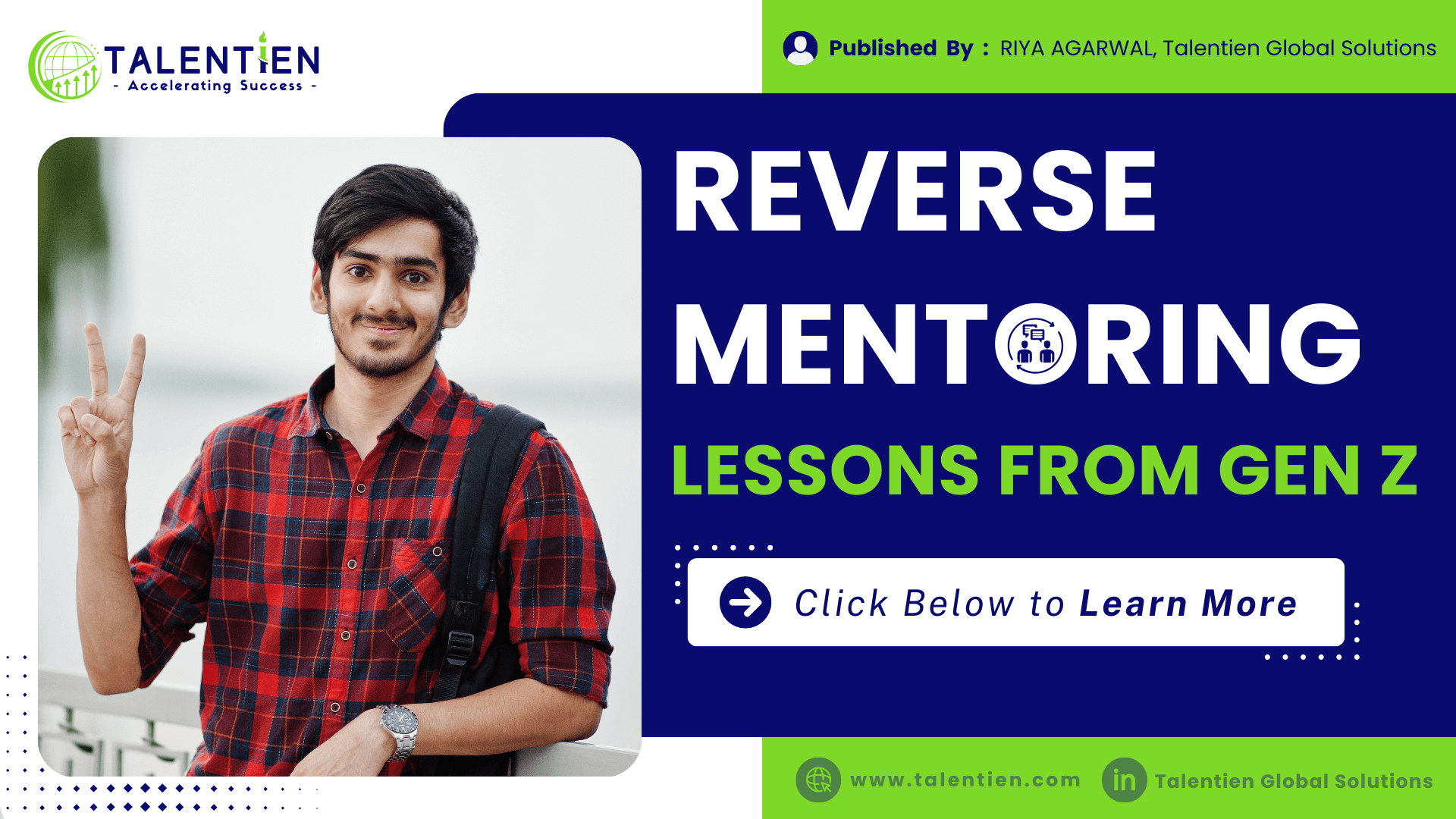You know what’s funny?
We spend years climbing the corporate ladder, taking workshops, attending leadership summits, reading all the “Top 10 Habits of Successful CEOs” books.
And then one afternoon, a 23-year-old intern asks a random question in a meeting — and it completely changes the way you see your business.
It’s humbling. It’s kind of terrifying. And it’s exactly what you need.
Table of Contents
ToggleSo.. What Is Reverse Mentoring?
Okay, let’s skip the boring textbook definitions.
Reverse mentoring is when the roles flip : Instead of the senior executive coaching the newbie, the younger, newer person ends up being the one with fresh insights.
Not because they know more than you – they don’t. But because they know things you’ve never even thought about.
Stuff like :
What Gen Z actually cares about when choosing brands
How fast social media culture can sink (or save) a company
How conversations about mental health, climate action, and diversity aren’t just “trends” – they’re non-negotiables
Why Leaders Should Stop Pretending They Know Everything
Here’s something not enough people admit : Pretending to be the smartest person in the room is exhausting.
And it’s a terrible leadership strategy.
Leaders who survive (and thrive) today are the ones who say :
“I don’t know. Tell me what I’m missing.”
That’s not weakness. That’s wisdom. That’s reverse mentoring at its best.
Your Intern Grew Up in a Different World. And That’s a Good Thing.
Imagine growing up with:
Instant access to global news, TikTok revolutions, AI breakthroughs
Watching brands rise and fall overnight because of one wrong tweet
Knowing you have the power to call out injustice — and expecting others to do the same
That’s the world your intern lives in.
And if you think your 20 years of experience alone will help you navigate that landscape without their input, you’re kidding yourself.
Real Examples of Reverse Mentoring That Actually Changed Things
A young marketing intern showing the senior team why traditional ads don’t work on Gen Z – and saving the company millions by shifting to influencer partnerships.
A junior developer teaching the CTO why decentralization matters – leading to a complete rethink of the company’s security strategy.
A summer intern questioning the company’s mental health policies – and sparking changes that drastically improved employee retention.
Notice something? None of these ideas would’ve even been on the radar if leadership hadn’t been willing to listen.
How to Not Screw Up Reverse Mentoring
It’s easy to mess this up. Here’s what NOT to do:



Instead :



But What If They’re Wrong?
Of course they’ll be wrong sometimes. That’s life.
Guess what? So are senior leaders. All. The. Time.
The point isn’t that younger employees are always right.
It’s that they see things you might miss.
They offer perspectives that add to the conversation.
You still make the final decision. But now you’re making it with a wider lens.
Leadership Isn’t About Knowing More. It’s About Staying Open.
At the end of the day, leadership isn’t about having all the answers.
It’s about staying curious. Staying humble. Staying willing to admit :
“Maybe there’s a better way. Maybe someone younger sees it before I do.”
Your 23-year-old intern might not have climbed the mountain yet. But they might just see the storm clouds gathering that you don’t.
And if you’re smart? You’ll listen.
Because leadership in 2025 (and beyond) isn’t about climbing faster. It’s about seeing further — together.
Next time you’re in a meeting? Ask the quietest, youngest person in the room : “What do you think we’re missing here?”
And then actually shut up and listen.
You might be surprised what happens.




